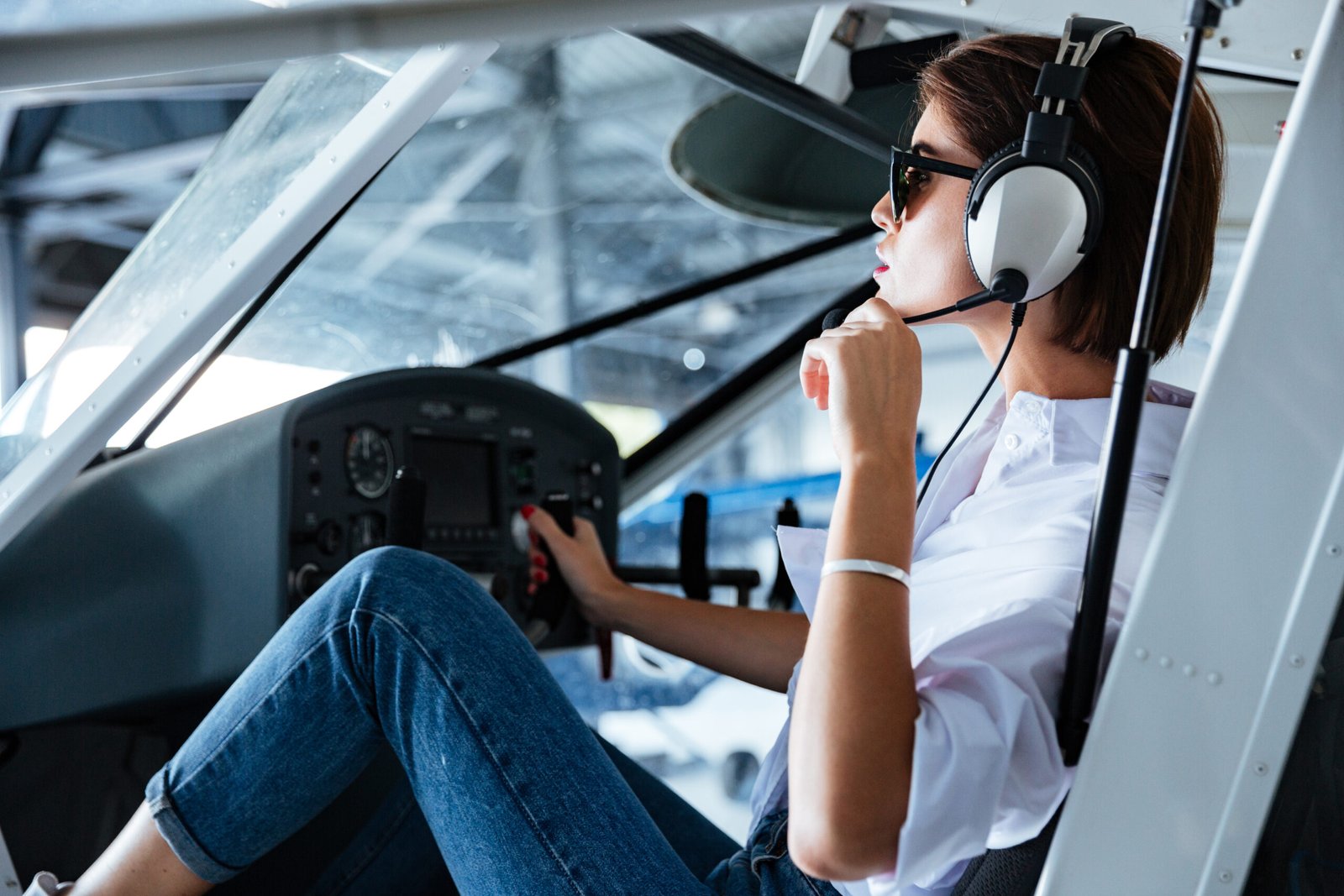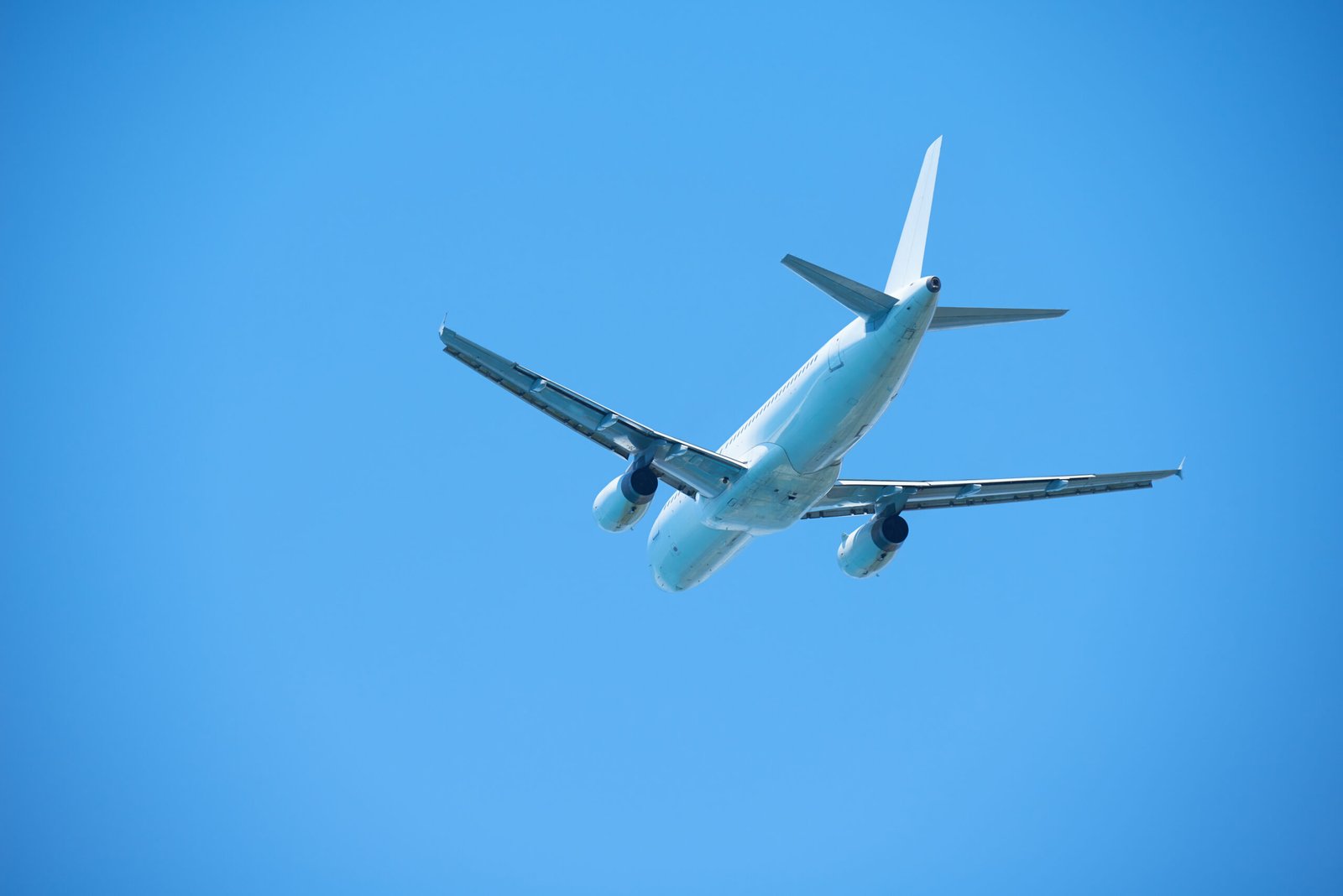aviation websites
Navigating Turbulence: How Aviation Adapts to Global Challenges
In a world where uncertainty and change are constants, the aviation industry continues to demonstrate remarkable resilience and adaptability. From evolving technological landscapes to shifting regulatory frameworks, the sector faces numerous challenges head-on. Central to this evolution is education, which plays a pivotal role in preparing the next generation of aviation professionals.
*Aviation Schools: Types of Courses**
Education in aviation is as diverse as the field itself. Various schools offer specialized programs that cater to different interests and career paths. Here’s a breakdown of some common types of courses available:

1. **Pilot Training Programs**: These are perhaps the most well-known offerings, encompassing private pilot licenses (PPL), commercial pilot licenses (CPL), and airline transport pilot licenses (ATPL). Students learn not just how to fly, but also about navigation, meteorology, and aircraft systems.
2. **Aircraft Maintenance Engineering**: For those inclined towards technical expertise, these courses focus on maintaining and repairing aircraft systems. They cover everything from jet engines to airframe structures.
3. **Air Traffic Control Training**: Aspiring air traffic controllers undergo rigorous training that includes simulations and real-time decision-making exercises to ensure safe skies.
4. **Aviation Management Programs**: These courses prepare students for administrative roles within airports or airlines, focusing on operations management, finance, marketing, and human resources specific to aviation.
5. **Unmanned Aerial Systems (UAS)**: With the rise of drones in commercial applications—from delivery services to agricultural monitoring—these programs teach students how to operate and manage UAS effectively.
Each type of course equips individuals with unique skills tailored for various sectors within aviation.
*Aviation Blogs, Websites & Social Media Sites**
Staying informed about industry trends is crucial for aviation enthusiasts and professionals alike. Here’s a list of noteworthy blogs, websites, and social media platforms dedicated to aviation:
**Airliners.net**: An extensive online community showcasing photographs and discussions surrounding various aircraft.
**The Points Guy**: This blog covers travel tips, loyalty programs, and airline reviews—perfect for frequent flyers seeking insight.
**Flying Magazine**: A treasure trove for pilots featuring articles on flying techniques, safety tips, gear reviews, and more.
**FlightAware.com**: Offers real-time flight tracking data along with insights into airport operations.
**YouTube Channels like Mentour Pilot & Captain Joe**: These channels provide engaging video content ranging from flight tutorials to behind-the-scenes glimpses at airline operations.
Social media platforms such as Instagram or Twitter also host vibrant communities showcasing stunning aerial photography or sharing personal flying experiences under hashtags like #AvGeek or #PilotLife.
*FAA Flight Schools & Simulators**
The Federal Aviation Administration (FAA) plays an integral role in regulating flight schools across the United States. FAA-approved flight schools maintain rigorous standards ensuring quality education in piloting techniques as well as compliance with safety regulations.
Many schools now incorporate advanced simulators into their curriculum—enabling students to practice flying in highly realistic environments without the risks associated with actual flights. These simulators range from basic setups mirroring small aircraft cockpits all the way up to full-motion simulators simulating large commercial jets.
As global challenges continue to shape industries worldwide—from climate change initiatives prompting greener technologies in aviation vehicles to navigating post-pandemic recovery—the educational backbone provided by diverse aviation courses ensures that professionals are ready for whatever turbulence may lie ahead.
In conclusion, through innovative training programs and robust online resources combined with FAA oversight on flight education standards—even amidst adversity—the world of aviation remains steadfastly airborne!
The Future of Flight: Innovations Shaping Aviation in the 21st Century
As we soar into the 21st century, aviation continues to evolve at an unprecedented pace. From cutting-edge technology to innovative training methods, the industry is on the brink of a transformation that promises to redefine flight as we know it. This post will explore key aspects shaping the future of aviation, including various educational pathways, valuable online resources, and advancements in flight training.
*Aviation Schools by Types of Courses**
Education plays a pivotal role in preparing the next generation of aviators. There are several types of aviation schools catering to diverse career paths within this dynamic field.
1. **Pilot Training Schools**: These institutions specialize in training aspiring pilots through programs that include Private Pilot License (PPL), Commercial Pilot License (CPL), and even Airline Transport Pilot (ATP) certification. Students engage in both ground school and hands-on flying experience.

2. **Aviation Maintenance Schools**: For those interested in aircraft maintenance and repair, these schools offer courses leading to Airframe and Powerplant (A&P) certification. Students learn vital skills such as troubleshooting mechanical issues and performing routine inspections.
3. **Air Traffic Control (ATC) Programs**: With air traffic becoming increasingly complex, ATC programs train individuals to manage airspace efficiently. Coursework includes communication protocols, radar operation, and emergency procedures.
4. **Aerospace Engineering Colleges**: These universities provide a deeper understanding of aircraft design and technology development. Courses often cover aerodynamics, avionics systems, and materials science.
5. **Flight Operations Management Degrees**: Focusing on the business side of aviation, these programs prepare students for roles in airline management or airport operations through classes on logistics, safety regulations, and financial management.
*Lists of Aviation Blogs, Websites, Social Media Sites**
In addition to formal education, staying informed about industry trends is essential for anyone passionate about aviation. A plethora of blogs and websites serve as excellent resources:
**AirlineReporter.com:** Known for its engaging articles on airline experiences.
**FlyingMagazine.com:** Offers insightful content covering everything from pilot tips to equipment reviews.
**AvWeb.com:** A well-rounded site featuring news updates and analysis pertinent to all things aviation.
**Jetwhine.com:** Focuses on insights from experienced pilots and industry professionals.
Social media platforms are also buzzing with aviation enthusiasts sharing their adventures:
On Instagram, follow accounts such as @aviationdaily for stunning aerial photography.
Twitter hosts lively discussions with handles like @avgeekery providing real-time updates.
Facebook groups like “Pilot’s Lounge” foster community among budding aviators by facilitating networking opportunities.
*FAA Flight Schools/Airplane Schools/Simulators**
The Federal Aviation Administration (FAA) ensures high standards for flight education in the United States through its network of recognized flight schools. Enrolling in an FAA-certified flight school guarantees access to professional instructors who adhere strictly to regulatory guidelines.

Additionally, many schools incorporate advanced flight simulators into their curriculum—an invaluable tool allowing students to practice navigation skills without leaving the ground! These simulators replicate real-world scenarios that pilots may encounter while flying commercially or privately.
In conclusion, as innovations continue shaping aviation from educational methodologies to technological advancements in training tools like simulators, it’s an exhilarating time for those entering this field. The blend of traditional knowledge with modern techniques ensures that future pilots will not only be equipped but also empowered to navigate the skies safely for years ahead!
Soaring High: The Evolution of Aviation Technology Through the Decades
Aviation has come a long way since the Wright brothers took to the skies in 1903. Today, we find ourselves in an era where technology not only enhances flight safety and efficiency but also revolutionizes how we learn about aviation. As we explore the evolution of aviation technology through the decades, it’s essential to look at some of the educational pathways available, valuable online resources, and FAA-certified training options that have shaped aspiring aviators.

### Aviation Schools by Types of Courses
The landscape of aviation education is diverse, catering to various interests and career paths within the industry. From traditional brick-and-mortar institutions to innovative online programs, aspiring pilots and aviation enthusiasts have a plethora of choices:
1. **Pilot Training Programs**: These courses are designed for those eager to take to the skies as private or commercial pilots. They include ground school instruction combined with hands-on flight training.
2. **Aviation Management**: For individuals interested in the business side of aviation, programs focus on airport operations, airline management, and air traffic control systems.
3. **Aircraft Maintenance**: Technical schools offer specialized training for those who wish to work on aircraft systems and structures, emphasizing safety protocols and regulatory compliance.
4. **Avionics Technology**: With advancements in electronic instrumentation in aircraft, avionics programs teach students about navigation systems, communication tools, and troubleshooting techniques.
5. **Unmanned Aerial Systems (UAS)**: As drones gain popularity across various sectors—from agriculture to defense—courses focusing on UAS technology equip students with skills for this burgeoning field.
### Lists of Aviation Blogs, Websites & Social Media Sites
In today’s digital age, staying updated with industry trends is easier than ever thanks to numerous blogs and websites dedicated to aviation. Here’s a curated list worth checking out:
**Airline Reporter**: This blog offers news from behind-the-scenes at airlines along with reviews.
**Flying Magazine**: An excellent resource filled with articles covering tips for pilots and features on new technology.
**The Points Guy (TPG)**: Though primarily focused on travel points and rewards; TPG often includes valuable insights into airline performance.
**AOPA (Aircraft Owners and Pilots Association)**: Provides resources for both novice pilots and seasoned professionals.
On social media platforms like Twitter or Instagram, following accounts such as @JetBlue or @Boeing can provide real-time updates directly from industry leaders.
### FAA Flight Schools/Airplane Schools/Simulators
When it comes to obtaining practical flight experience, FAA-certified schools are paramount. These institutions adhere strictly to regulations ensuring high standards of training:
1. **Part 61 Schools**: Flexible programs allow students to progress at their own pace while working towards their pilot license.
2. **Part 141 Schools**: Structured curricula provide a more regimented approach that may suit those looking for fast-tracked learning experiences.
3. **Flight Simulators**: Advanced simulators mimic real flying conditions without leaving solid ground—these invaluable tools help trainees practice maneuvers safely before entering actual cockpits.
From foundational pilot training courses at local schools to advanced technical studies online or through immersive simulations—aviation education continues evolving alongside technological advancements in aircraft design and operation.
As you reflect on your journey into this fascinating realm where innovation meets tradition—remember that every great flight begins with well-crafted knowledge! Whether you’re planning your first solo flight or just curious about aviation’s rich history—soar high into your dreams!
The Future of Flight: Innovations Transforming the Aviation Industry
As we soar into a new era of aviation, the landscape is evolving rapidly, driven by groundbreaking innovations and advancements. The future of flight is not only about sleek aircraft and high speeds; it’s also about training the next generation of aviators, sharing knowledge through various platforms, and harnessing technology to enhance safety and efficiency. Let’s delve into the different facets transforming this dynamic industry.
### Aviation Schools: A Spectrum of Courses
To navigate the skies effectively, aspiring pilots need comprehensive education tailored to their goals. Aviation schools offer a multitude of courses that cater to diverse interests and career paths.
1. **Private Pilot Training**: This foundational course introduces students to essential flying skills. It prepares them for private pilot certification, allowing them to fly solo or with passengers under specific regulations.
2. **Commercial Pilot Programs**: Once students obtain their private license, many opt for commercial training to gain professional piloting credentials. These programs provide advanced instruction on navigation, flight maneuvers, and operational procedures.
3. **Air Traffic Control (ATC) Training**: Not all aviation careers involve flying! ATC courses prepare individuals to manage air traffic safely and efficiently using cutting-edge technology.
4. **Aviation Management**: For those interested in the business side of aviation, management programs focus on airport operations, airline management, logistics, and regulatory compliance.
5. **Maintenance Engineering**: Recognizing the importance of aircraft upkeep, these technical courses equip students with skills needed for aircraft repair and maintenance—ensuring safety in every flight.
### A Wealth of Information: Aviation Blogs and Websites
In today’s digital age, staying informed is easier than ever thanks to a plethora of blogs, websites, and social media channels dedicated to aviation enthusiasts:
**Airline Reporter**: This blog covers industry news with a unique perspective on travel experiences.
**Flight Global**: An authoritative source for aviation news that keeps readers updated on global trends.
**The Points Guy (TPG)**: Focused on travel rewards strategies but rich in insights relevant to frequent flyers.
**AvGeekery**: A community-driven site where avid aviation fans share stories about their love for planes.
**YouTube Channels like Mentour Pilot**: Offering engaging video content that breaks down complex aviation concepts in an accessible way.
Social media platforms such as Instagram have taken flight too! Accounts like @aviationdaily showcase stunning aerial photography while Twitter handles like @FlightAware provide real-time tracking updates—keeping fans connected in real time.
### FAA Flight Schools & Simulators
For practical training grounded in safety standards, FAA-approved flight schools are vital stepping stones for aspiring pilots. These institutions adhere strictly to regulations set forth by the Federal Aviation Administration (FAA), ensuring quality education throughout various stages of pilot development.
Additionally, simulators have revolutionized pilot training over recent years. Advanced simulation technology allows students to experience realistic flying scenarios without ever leaving the ground! These systems replicate actual cockpit environments enabling learners to practice emergency procedures or hone specific maneuvers safely before taking off in real aircraft.
Simulators not only reduce costs associated with traditional flight hours but also permit learners endless opportunities for practice—an invaluable resource as they prepare for licensing exams or further certifications.
### Conclusion
The future of aviation gleams bright with innovation at its helm—from diverse educational pathways nurturing talent across various sectors within the industry to technological advancements redefining how we train pilots and share information. As we embrace these changes together as enthusiasts or professionals alike—one thing remains certain; our passion for flight will continue soaring toward new horizons!

Aviation Safety: How Airlines Are Keeping You Safe in the Skies
In an age where air travel is more accessible than ever, the emphasis on safety remains paramount. Airlines around the globe are not only committed to providing comfortable flying experiences; they are also dedicated to ensuring that passengers arrive at their destinations safely. A crucial part of this commitment lies in the rigorous training and education of aviation professionals. Understanding how airline safety protocols are rooted in comprehensive aviation education can give travelers peace of mind.
Aviation schools play a pivotal role in shaping competent pilots, flight attendants, air traffic controllers, and maintenance technicians. These institutions offer a variety of courses tailored to different career paths within the industry. For instance, aspiring pilots typically enroll in programs focusing on flight training and aeronautical science. On the other hand, those seeking careers as flight attendants might pursue courses in customer service management and emergency procedures.
Moreover, specialized aviation maintenance programs equip students with the technical skills needed to ensure aircraft are safe for operation. Courses often include hands-on experience with simulators and real aircraft, fostering an environment of practical learning that is essential for maintaining high safety standards within airlines.
The Federal Aviation Administration (FAA) plays a significant role in regulating aviation education across the United States. The FAA certifies various flight schools and airplane training academies to ensure they meet strict safety guidelines. Many of these institutions offer advanced simulation training that allows students to practice navigating complex scenarios without leaving the ground. These simulators replicate real-life flying conditions closely, enabling trainees to hone their skills under controlled circumstances before taking off into actual skies.

Apart from formal education, staying informed about aviation safety trends is vital for both industry professionals and frequent flyers alike. Numerous blogs and websites serve as valuable resources for anyone interested in aviation topics ranging from safety innovations to regulatory changes.
For starters, **Air Safety Institute** provides insightful articles focused on enhancing pilot awareness regarding safety practices while flying. Similarly, **Flying Magazine** offers expert advice along with inspiring stories from seasoned aviators who share their experiences navigating the skies safely.
Social media platforms have also emerged as hubs for sharing knowledge about aviation safety. Following accounts like **@AvGeek** on Twitter or **FlyerTalk** on Facebook can keep you updated with real-time news about airline operations and emerging technologies aimed at improving passenger security.
Engaging with these communities not only broadens your understanding but fosters a culture where everyone shares responsibility for promoting safe travel practices within the industry.
As we soar through modern-day skies filled with advancements like predictive maintenance systems and enhanced cockpit technologies, it becomes evident that airlines prioritize safety above all else. The convergence of rigorous training programs offered by FAA-certified schools coupled with ongoing dialogue through blogs and social media ensures that both professionals and passengers remain informed about best practices in aviation safety.
Every flight embodies countless hours of meticulous preparation behind the scenes—from pilot training to engineering checks—all designed with one goal: keeping you safe as you embark on your journey through clouds high above our world. So next time you board an aircraft, take comfort knowing that a network of dedicated individuals has worked tirelessly to safeguard your experience aloft!




